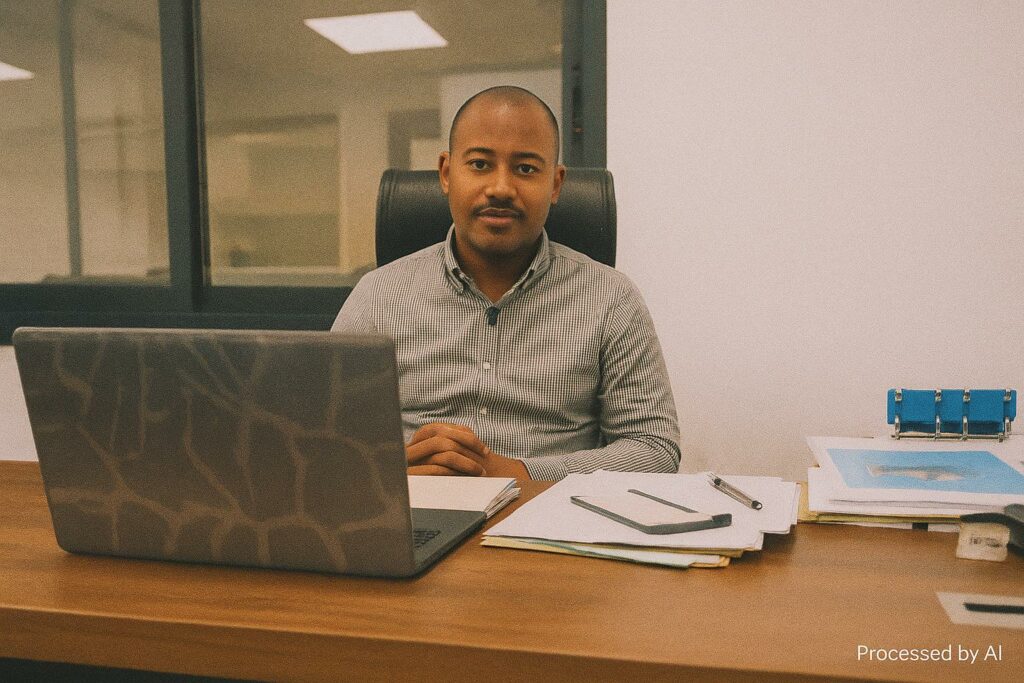Kinshasa’s Entrepreneurial Pulse Beyond Statistics
On the broad boulevards of Kinshasa the language of possibility has begun to rival street-corner rhetoric about constraints. According to the World Bank, nearly three Congolese out of four are under 30, a demographic that transforms the capital into an incubator more than a mere metropolis. It is into that crucible that the Team Dr Balako Liyanza foundation inserted itself in 2022, declaring that entrepreneurship is no longer an optional extra-curricular activity but a prerequisite for economic security. The organisation’s recent announcement that it will intensify coaching, seed-fund matching and business literacy workshops during the current quarter therefore resonates with analysts who have long argued that Central Africa’s GDP curve will only bend upward once the private ingenuity of its citizens is unleashed.
Philanthropy Aligning with Regional Development Agendas
The foundation’s programme architecture sits comfortably within the national objectives outlined in the Democratic Republic of Congo’s Plan National Stratégique de Développement 2019-2023, which allocates a prominent role to public-private convergence in tackling unemployment. Simultaneously, Brazzaville’s own National Development Plan underscores youth skills as a pillar of diversification away from hydrocarbons. In private conversations, multilateral officials observe that the conceptual overlap has opened discreet corridors for cross-river dialogue, an unspoken bonus in a sub-region still contending with fragmented policy ecosystems.
Gender-Focused Capacity Building in Urban Communities
Founder Jean Dénis Balako Liyanza insists that the metrics of success will be measured first in the aspirations of young women. He maintains that « our mission is to redress the gendered opportunity gap by providing tools, networks and a sense of professional identity ». His rationale is corroborated by United Nations Development Programme data showing that labour-force participation among Congolese women lags behind male counterparts by nearly fifteen percentage points. The foundation plans to leverage role-model testimonials and tailored apprenticeships in information technology and agro-processing, sectors commonly cited by the African Development Bank as high-growth niches suitable for female innovators.
Bridging Brazzaville–Kinshasa Synergies for Youth
Diplomats along the Congo River corridor note that philanthropic endeavours often function as informal confidence-building measures. While the foundation is formally wp-signup.phped in Kinshasa, its leadership has hinted at forthcoming pilot clinics and business boot camps in Pointe-Noire and Brazzaville, responding to requests from civil-society partners. Such gestures mirror the 2019 memorandum of understanding between the two Congos on youth exchanges, an accord that has remained under-reported yet operational according to officials within the International Conference on the Great Lakes Region. By working across the waterway, the organisation contributes to what one senior Central African Economic and Monetary Community adviser describes as “micro-scale integration with macro-economic dividends”.
Financial Constraints and the Diplomatic Call for Partnerships
Sustainability, inevitably, hinges on resources. Dr Balako Liyanza acknowledges that material and fiscal pressures persist, a predicament shared by most non-profit actors in a country where domestic philanthropy is still nascent. International partners recognise a mutual interest. The European Union’s recent Team Europe Initiative on Sustainable Value Chains places entrepreneurship training within its eligible envelope, while the African Export-Import Bank has opened a youth start-up guarantee window. Embassy economic sections have therefore begun exploratory talks with the foundation, treating it as a potential conduit for grant-matching schemes that would cushion the volatility of bilateral aid cycles.
Political Engagement Without Partisanship
Observers sometimes conflate the foundation’s civic vocation with its founder’s affiliation to the Mouvement de Libération du Congo. Yet the organisation has thus far carved a non-partisan operational space, hosting incubation seminars attended by parliamentarians from divergent blocs and municipal officials from Kinshasa’s Mont-Ngafula district. The approach corresponds to continental best practice outlined by the African Union’s Charter on Youth Participation, which encourages political literacy without prescribing partisan allegiance. A veteran Congolese political scientist suggests that the ability to remain programmatically neutral while leveraging parliamentary advocacy may ultimately secure broader legislative support for start-up decrees currently under review.
Navigating a Continental Green and Health Agenda
The foundation’s portfolio is deliberately multi-sectoral, intertwining entrepreneurship with public health outreach and environmental stewardship. Urban erosion, an acute threat to Kinshasa’s peripheral communes, features prominently. Geologists at the University of Kinshasa estimate that up to nine hectares of residential land are lost annually to ravines. By training youths in low-cost bio-engineering techniques that stabilise slopes with vetiver grass, the organisation positions ecological mitigation as a business opportunity rather than a cost centre. Concurrent mobile clinics offering malaria screening demonstrate a holistic reading of the Sustainable Development Goals, integrating health gains with productivity outcomes.
Prospects for a Generation of Solution-Providers
As the third quarter unfolds, diplomatic watchers will monitor whether the Team Dr Balako Liyanza foundation succeeds in translating pilot enthusiasm into scalable ventures. Economic historians remind us that entrepreneurship ecosystems mature through iterative learning loops. Kinshasa’s experiment therefore matters not only for the city but for the entire Congo Basin, including Brazzaville, where demographic pressures mirror those across the river. The political leadership of Congo-Brazzaville has repeatedly articulated its commitment to youth empowerment; an emerging trans-Congo network of foundations and accelerators can furnish tangible evidence of progress. The story is less about one organisation than about a generational contract in the making, fashioned by pragmatic actors who recognise that the river is a bridge, not a boundary.

